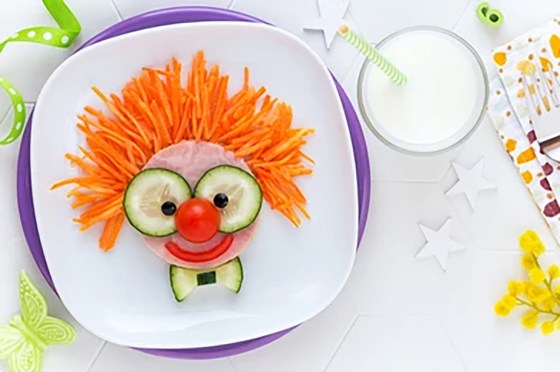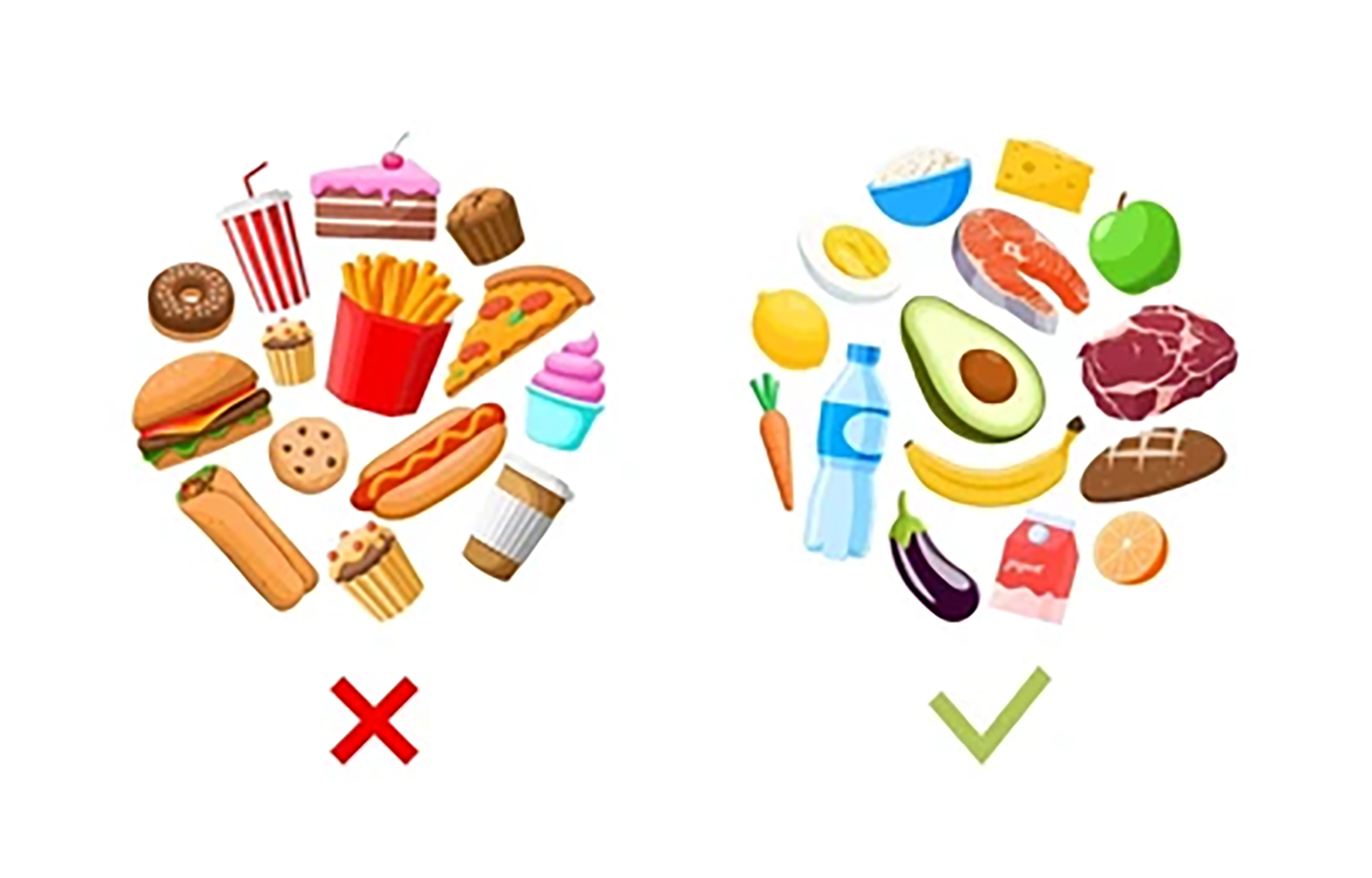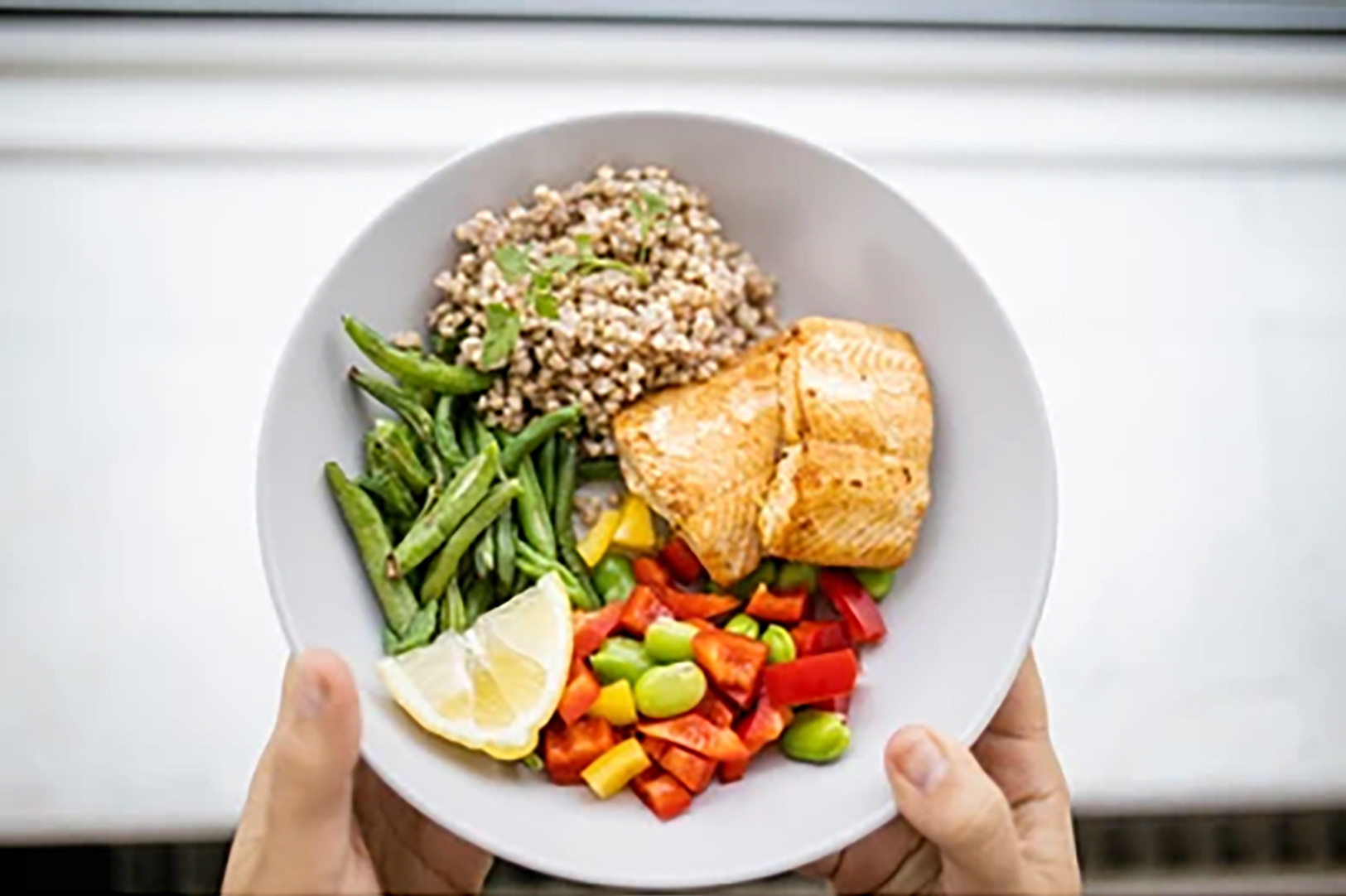
Here are a few hacks to get your kids into healthy eating:
Make it a ‘happy habit’!
Our excellent paediatrician in Dubai shares insights on why ‘Healthy foods’, especially among kids and teens are generally perceived as boring, so the best way to flip it around and make it appealing is to get them involved in choosing nutritious, but tasty options.
A great way to kick this off is to involve your children earlier on in the decision-making process of meal setting, such as accompanying you to the vegetable market and empowering them to pick out fresh fruits and veggies on their own.
Kids in their early teens could settle for bigger roles such as preparing the recipes or planning the ‘healthy shopping list’!

Demonstrate how “eating right” looks like.

One of the best ways to actively engage your kids is to get them to be a part of your recipe plan from day one!
You could use visual aids such as movies or content that your young ones are constantly exposed to, on social media platforms that explain the benefits of eating healthy.
Like including nutritious fruits and veggies into their meals to help their bodies grow, or whole grains and lean protein that pack in enough energy to stay active.
When you’re cooking or grocery shopping, show them different examples of these key food groups.
Avoid labelling foods as “good” or “bad.”
Generalising certain foods can be the worse thing for any meal plan you may have for getting your kids eating right. Labeling foods as ‘ok’, ‘not-so-ok’, ‘great’ and ‘no’, tend to slot foods into the minds of your young ones, which can affect their dietary habits.
For instance, more acceptable patterns would be to highlight ‘healthy foods’ like whole grains as essential requirements every day of the week while “going easy” applies to unhealthy snacks such as cream waffles or popcorn.
Occasionally, when your children do their Netflixing, it’s ok to keep a prescribed and ‘safe’ portion of less nutritious snacks like French Fries or tacos they can binge on. This is just so that you are not seen as overbearing in depriving them from life’s little joys.

Never ignore ‘portion size’ in meals.

Even if you were to talk to the best paediatrician in Dubai, the common point of agreement is always that ‘Quantity is just as important as Quality.’ when it comes to meal planning for your young ones. It’s not just what they eat that matters, but how much. Then again, you need to take care in observing this, given that quantity and calorie requirements vary from one child to another.
You can always point out the wisdom of eating just the right amount of rice or pasta that matches the size of their fist, while protein in pulses or chicken slices, should be palm-sized. Further below the food meal chain, fats like butter or mayonnaise should measure the tip of their thumb.
A good tip: get your kids to choose the serving size while you are out shopping for groceries. It gives them a sense of responsibility while pushing them to stick to the ideal meal serving. Remember, the keyword here is ‘moderation.’
Go easy on sweets!
Most children have a sweet tooth, no thanks to classic chocolate doughnuts and ice cream flavours jumping off their social media pages inviting them to indulge. While candy and chocolates sure taste good, the sugar intake released can be harmful to your kid’s health, causing cardiovascular diseases or chronic diabetes if unchecked.
One way is to tell your younger kids that too many sweets will make their tummies ache while being grounded at home for day to recover. Then, as an alternative, substitute fresh fruit for desserts while limiting treats to two or three times a week to keep those sweet cravings in check.

Define your child’s “hunger intervals.”

This is where one ‘eats to live, not live to eat’.
Your body’s natural tendency is knowing when to eat when your’re hungry and when to stop when full. For kids, it’s a tough one for their impressionable minds, when they are constantly surrounded by delicious snacks and giant portions.
Our leading Indian paediatrician in Dubai suggests that your goal as a parent is to get their bodies in tune at a young age, while avoiding them to “have one more bite” in order for them to clean their plate, a common mistake, at a young age. Another healthy habit they can develop is to get them to turn off screens while having meals, as they can get distracted from paying attention to their meal portions.
Be a living example of healthy eating.
According to one of our top paediatricians in Dubai, Nothing succeeds like setting an example. When you advise your children to eat healthy food and in the right portions, you need to do so by example.
Simply because your child picks up habit cues from you at a young age. Every bite you take matters. Role modeling has been proven by food scientists and nutritionists to be the right way to help kickstart the practice of healthy eating among your children.
The family that eats together, stay healthy together.

Eating a meal together at home with your family is more than just eating: it’s fostering emotional bonding between you as a parent, your children and other family members that help your little ones develop the right social skills as they grow.
Our Dubai Paediatrics Doctor at HealthHub Clinics believes according to research, that children who eat meals with their families are more likely to get into the habit of eating healthy fruits, veggies, and whole grains at a young age and less likely to indulge in junk food. The secret lies in making meals together more fun, from playing some accompanying music to lven up the mood or calling your favourite family guest over for dinner or lunch.
It may not be the diet, it’s getting your doctor right!
Sometimes forcing your child to follow a strict diet may also not work, when you take into account allergies or deficiencies that may not be easily available at the start. This is where it would help speaking about the issue to our Paediatric Allergist in Dubai.
If you think your child needs to lose or gain weight, don’t put them on a diet. Just speak with our paediatricians at HealthHub Clinics to help you know more about the importance of knowing the reactions and effects of basic food groups, proper meal time behaviours, the food portions to be served, and issues such as sudden weight loss or weight gain.
Help them make the right dietary choices!
As your children get older, remember that an unbalanced diet can contribute to a variety of chronic health conditions later on, from obesity, and heart disease to diabetes. Make sure they follow a consistent health menu that includes:
- Fruits and vegetables
- Whole grains
- Fresh fish and eggs rich in Omega 3
- Full fat dairy product and non-processed cheeses (with added vegetable oils, food colouring and sometimes sugar or cornstarch)
- Fiber-rich foods such as beans and leafy greens
What’s to be avoided: the ‘usual unhealthy suspects’ such as fries, pizzas, syrupy puddings and milk shakes that are high in sugar and refined carbohydrates.
Research done in 2021 by one of our outstanding paediatricians in Dubai, clearly proved how nutrition is linked with mental wellbeing in school-going children. After surveying data on a select base of children, a common pattern that emerged showed that consuming larger portions of fruit and vegetables had a significant improvement on mental well-being.
The family that eats together, stay healthy together.

While shopping at a grocery in a hurry, you might ignore the fine print on a food packaging item. We are not talking just expiry dates, but the nutritional content of an item which is a mandatory requirement as per health authorities in the UAE.
Just make sure to check out the product packaging which as a rule of thumb, indicate information such as ingredients, allergic reactions, serving size and calorie amounts. Other fine print would also include the percentage and value of fats, fiber, sugar, protein and vitamins and minerals.
This is because it is also proportionate to the nutrition requirements your child would require as he or she gets older. Book an appointment with our top-rated pediatricians in Dubai to ensure they’re receiving the nutrition they need.
Get your kids to keep moving.
The UAE has recorded one of the highest obesity rates in the world, owing to a largely sedantary lifestyle.
That’s why, staying healthy at a young age is key. If your child is between 3 and 5 years of age, he or she should be encouraged to achieve at least about 3 hours of daily activity in a day from heavy duty sports such as cycling, basketball and football to a light jog or skipping ropes. Children between 6 and 17 years of age should ideally aim for an hour of moderate to vigorous physical activity a day.
There are different ways to get your children on the move:
- Aerobic sport. An hour of running, swimming, soccer or basketball for at least 3 days of the week.
- Muscle-strengthening sport Teens can try mountain climbing, playground sports, or lifting weights, 3 days a week, which help strengthen the muscles.
- Bone-strengthening sport. Examples include running, basketball, and skipping rope, 3 days of the week.
- Natural ‘domestic’ sport: Involve your child in household activities where activity is involved like gardening, walking the dog or washing the car.
Getting enough zzz time!

While good sleep is important for everyone, given we spend a good half of our lives in sleep, getting the right amount for a child at an early age is really important.
Poor sleep is associated with a variety of negative health effects even causing sleep apnea at a later stage if unchecked while in children, it can even create social and behavioural issues to loss of focus or concentration that could affect academic performance.
A reputed organization lists the appropriate amount of sleep that children between the ages of 4 months to later teens should receive for a 24-hour duration:
- 4 months to 12 months: 12 to 16 hours
- 1 to 2 years: 11 to 14 hours
- 3 to 5 years: 10 to 13 hours
- 6 to 12 years: 9 to 12 hours
- 13 to 18 years: 8 to 10 hours
You can read more about how to achieve better sleep in our blog on sleeping healthy.
To know more, book an appointment right away with a reliable paediatrician in Dubai or talk to our team of paediatricians at HealthHub Clinics today. Call 800 2344.











